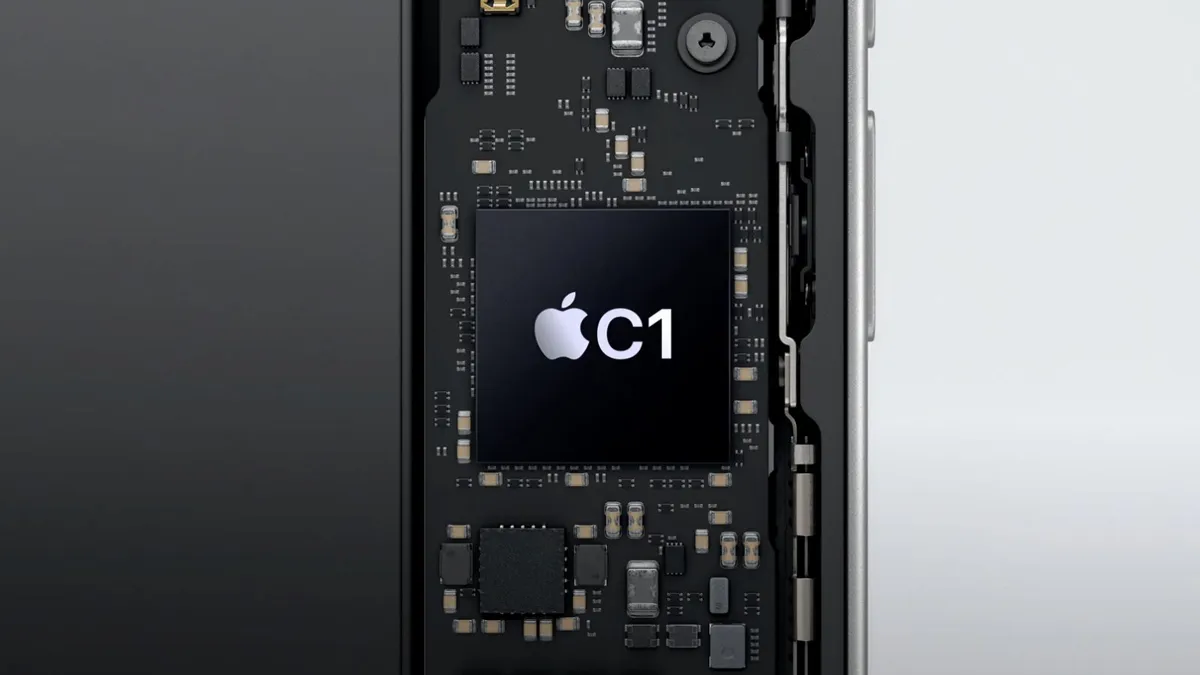
The launch of the new iPhone 16e marks a significant milestone for Apple as it introduces a custom-designed C1 modem for 5G and LTE connectivity. Unlike other current iPhone models that rely on Qualcomm modems, the iPhone 16e stands out with Apple's own technology. While this change might not attract the attention of the average consumer, it is a monumental step for Apple, which has been working on its own cellular modem since at least 2018.
Although we are still awaiting C1 modem speed tests, it is anticipated that Apple's first modem may offer slower 5G speeds compared to Qualcomm's Snapdragon X71 modem found in other iPhone 16 models. Nevertheless, Apple aims to eventually match or even surpass Qualcomm in modem performance, although this goal could take several years. In the interim, Apple asserts that the C1 modem is the most power-efficient modem ever in an iPhone, contributing to the iPhone 16e's record-breaking battery life among 6.1-inch iPhone models, including the regular iPhone 16.
Renowned for its excellent hardware and software integration, Apple continues to push boundaries with the C1 modem. In a recent press release focusing on its U.S. manufacturing commitments, Apple heavily hinted at future devices featuring custom 5G modems. According to the announcement: "Apple C1 adds a new chapter to the story of Apple silicon and is the result of years of R&D investment, bringing together the work of thousands of engineers."
Which devices might feature Apple's custom-designed modem next? According to Apple supply chain analyst Ming-Chi Kuo, the ultra-thin iPhone 17 Air is expected to include the C1 modem. Additionally, cellular iPad 11 configurations are considered suitable candidates for the C1 modem, with an announcement anticipated in March or April. Beyond that, Bloomberg's Mark Gurman reports that Apple is considering adding 5G modems to future Mac and Vision Pro models.
Apple has acknowledged that it begins developing future A-series processors for iPhones up to four years in advance, likely applying the same strategy to C-series modems. Notably, reports suggest that Apple is already working on C2 and C3 modems. With the C2 modem, Apple aims to introduce mmWave 5G support, while the C3 modem is expected to outperform Qualcomm's modems. The C2 modem could be integrated into all four iPhone 18 models and the iPad Pro.
Why did Apple develop its own iPhone modem? Firstly, it eliminates the risk of relying on an external supplier, particularly for single-sourced components like Qualcomm's modems. Secondly, Apple has had a tumultuous relationship with Qualcomm. Although the two companies settled a lawsuit and extended their modem supply agreement for iPhones through March 2027, Apple is likely seeking to avoid further extending that contract.
Initially, Apple attempted to reduce its reliance on Qualcomm by using Intel modems in some iPhone models from the iPhone 7 through to the iPhone 11 series. However, this decision was controversial as tests showed the Intel modems underperformed compared to Qualcomm's. Apple returned to exclusively using Qualcomm modems with the iPhone 12 models, which introduced the 5G era. However, Apple also decided to design its own modem as a long-term solution. In 2019, Apple acquired the majority of Intel's smartphone modem business, culminating in the debut of the C1 modem after years of development.
Ultimately, every cellular Apple device is likely to feature a C-series modem in the future.